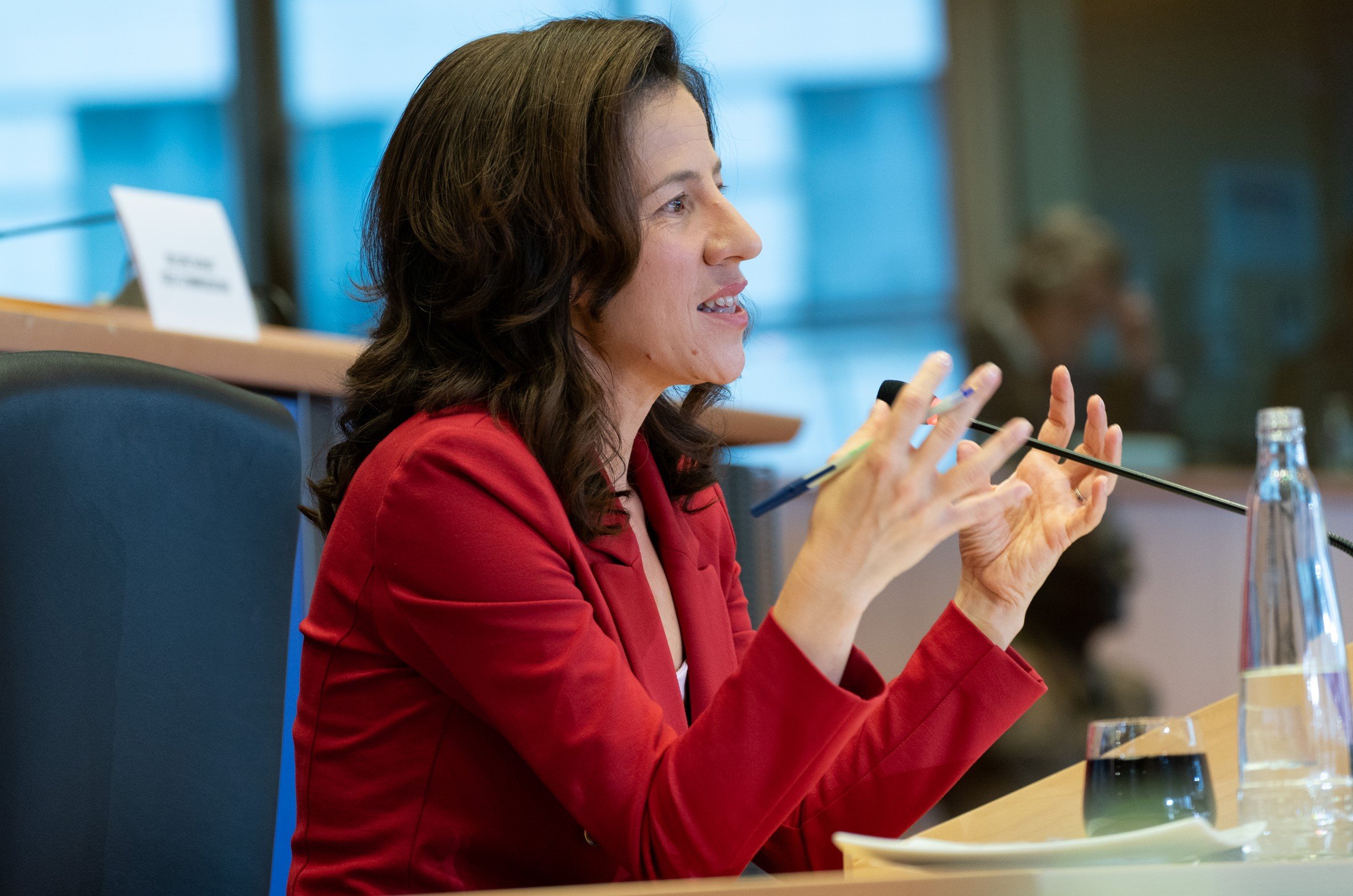Brussels, 12 November 2024
The members of two committees questioned Roxana Mînzatu, Romanian candidate for Vice-President for the People, Skills and Preparedness portfolio on Tuesday afternoon.
In her introductory speech to the Employment and Social Affairs and to the Culture and Education committees, Ms Mînzatu said that, if confirmed, she would focus on preparedness, quality jobs and social fairness. Ms Mînzatu said she intends to launch an European Dialogue to listen to people’s expectations regarding work and work-life balance, as well as a new Action plan on the implementation of the European Pillar for Social Rights.
She said she wants to enhance preparedness through progress on labour mobility and with measures such as the Initiative on Skills Portability, aiming to facilitate the recognition of training and qualification at the EU level. Ms Mînzatu also mentioned the need to reinforce the quality of training beyond borders, and to ensure skills in key areas such as science, technology, engineering and mathematics (STEM). She also committed to helping develop talent, skills (including basic and digital skills), and a competitive labour market.
To ensure quality jobs, Ms Mînzatu said she would promote a quality job roadmap, making sure the EU’s social laws and minimum wage legislation are implemented. She also wants to strengthen the European Labour Authority. Ms Mînzatu stressed the importance of decent wages and fair working conditions for all, with a special focus on people with disabilities. She emphasised the importance of inclusiveness in the labour market and equal opportunities, in particular for young people, which would be supported by the Youth Guarantee.
Noting that a quarter of EU children live on the brink of poverty and that here are one million homeless people in the EU, Ms Mînzatu highlighted the need to tackle poverty and ensure social fairness. For this, the Executive-Vice-President-designate is proposing a comprehensive European policy against poverty, ranging from housing to energy, transport to health care and from climate to gender equality.
A more comprehensive Erasmus+
Questioned by MEPs from the Committees on Employment and Social Affairs and on Culture and Education, Roxana Mînzatu promised a stronger funding of Erasmus+ in the next multiannual financial framework (MFF), which should also be more inclusive and reach more beneficiaries from a vulnerable economic background, while stepping up vocational education and training (VET). “This next Commission will be an investment Commission,”she said, suggesting synergies between different EU programmes, such as Erasmus+ and the European Social Fund Plus (ESF+).
Ms Mînzatu aims to make the European degree a reality by ensuring that the European Universities Alliance receives legal status by increasing the number of universities joining the initiative and by offering a general recognised degree. Members also questioned Ms Mînzatu on the Teachers Agenda and the relation between children and new technologies.
The chairs expressed their dissatisfaction regarding the title of the portfolio, considering it does not reflect the need for focusing on quality jobs, and does not mention education.
You can watch the video recording of the full hearing.
Press point
At the end of the hearing, the Chairs of the Committees on Employment and Social Affairs and on Culture and Education, Ms Li Andersson and Ms Nela Riehl, held a press point outside the meeting room: watch it here.
Next steps
The chairs and political group coordinators of both committees will meet without delay to assess the performance and qualification of the Vice-President-designate.
Based on the committee recommendations, the Conference of Presidents (EP President Metsola and political group chairs) is set to conduct the final evaluation and declare the hearings closed on 21 November. Once the Conference of Presidents declares all hearings closed, the evaluation letters will be published.
The election by MEPs of the full college of Commissioners (by a majority of the votes cast, by roll-call) is currently scheduled to take place during the 25-28 November plenary session in Strasbourg.
Further information
Source – EU Parliament

